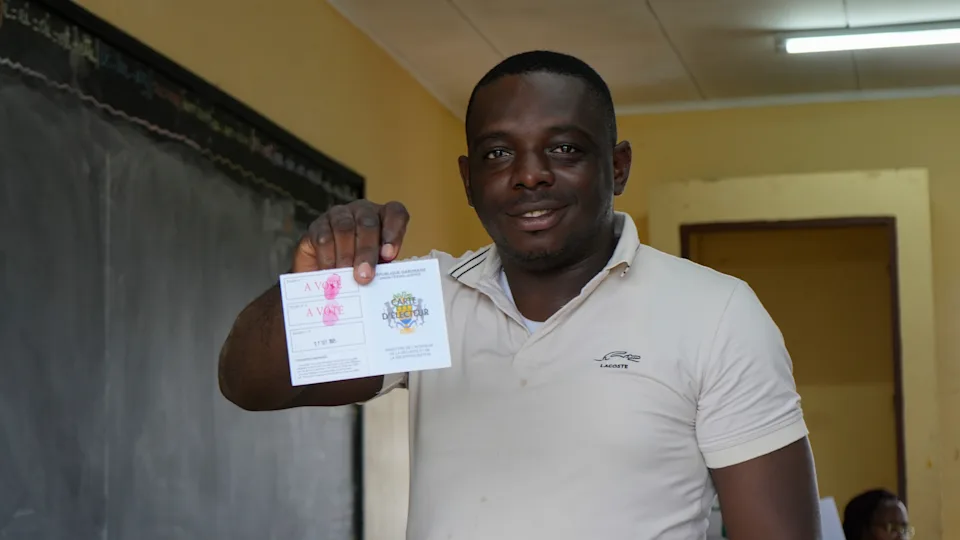
Gabon is holding its breath as the results of Saturday’s crucial double election remain pending, determining the composition of both the National Assembly and local councils.
Nearly a million citizens were called to the polls in what has been described as a decisive moment in the young presidency of Brice Clotaire Oligui Nguema.
The elections, intended to fill 145 parliamentary seats alongside thousands of regional, municipal, and departmental posts, were conducted in a generally calm atmosphere. Voter engagement was high, with many citizens attending polling stations equipped with phones to document the process.
“We want to protect our vote,” one Libreville resident said, highlighting the public’s demand for transparency and a desire to move beyond past electoral disputes.
President Nguema, who secured over 94% of the vote in the presidential election six months ago, is seeking a strong parliamentary majority for his Democratic Union of Builders (UDB).
His party faces the challenge of consolidating power against the former ruling Gabonese Democratic Party (PDG), which is attempting to defend its traditional strongholds, while the opposition, though weakened, mobilized its supporters for the ballot.
Despite a largely smooth voting day, the Interior Ministry reported the cancellation of the poll in Ntoum, a suburb of Libreville, citing local tensions and logistical irregularities, including missing ballots.
This incident underscores the ongoing organizational challenges in Gabonese elections.
As the counting process continues, no consolidated results have been announced, leaving both citizens and political observers in suspense. Public broadcasters, who had organised election-night coverage, were unable to provide definitive figures.
A second round has already been scheduled for October 11 in constituencies where no candidate achieved an absolute majority, setting the stage for a final resolution of this high-stakes electoral contest.
Gabon’s political future now hinges on these results, which will reveal whether President Nguema’s UDB can secure the legislative strength needed to implement its agenda and reshape the country’s governance landscape.



